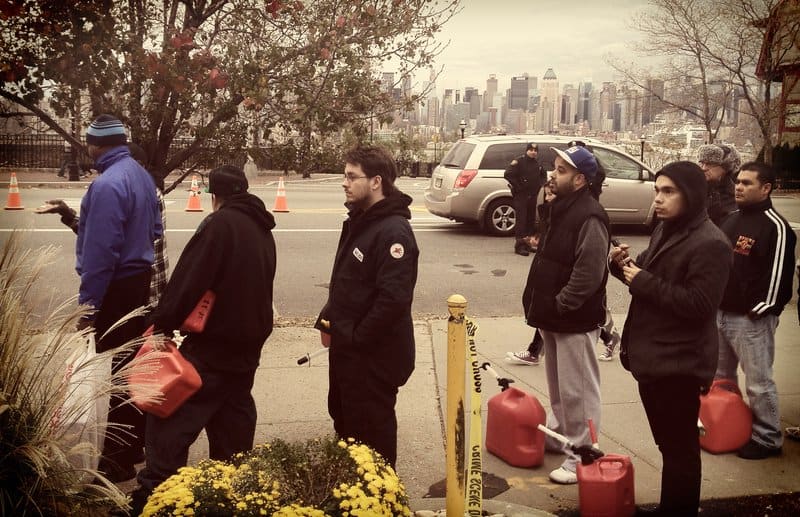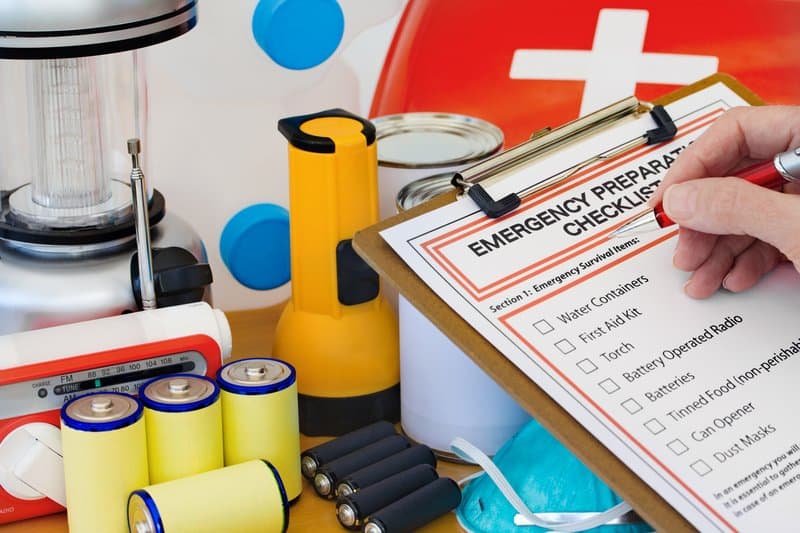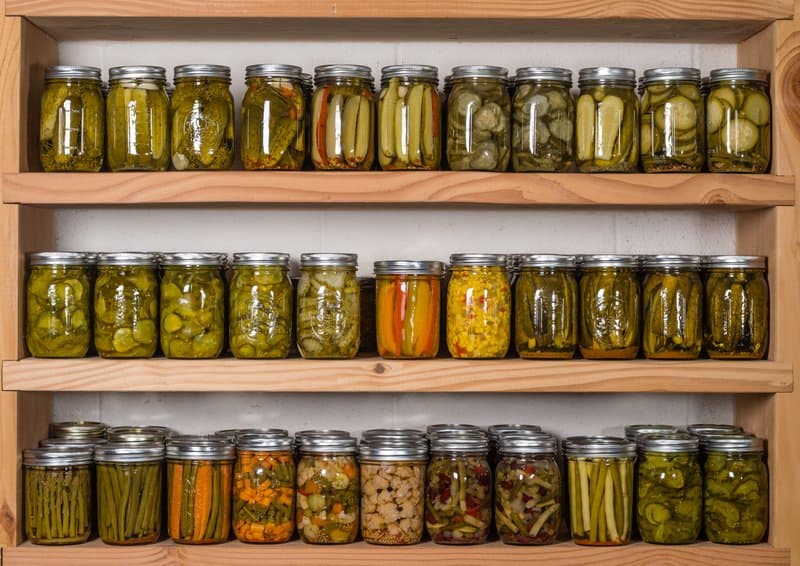The Olympics are over, and so is the faux show of international harmony, at least for everyone but China and Russia. Their partnership is real.
In case you missed it, those two nations recently signed new agreements strengthening their alliance. In the announcement, they challenged the notion of a U.S./Western-led world order. As if telegraphing their intentions, each backed their friend’s individual claims. China supported Russia’s complaints about an expanding NATO. Russia endorsed China’s claim to Taiwan.
Now there is war in Europe. Would it surprise anyone that a Chinese invasion of Taiwan could be next?
Exponential and Possibly Existential Problems
If you've watched the news these last few days, and you’re like me, there have been moments when you were short of breath contemplating all the possible threats to life as we know it if we went to war with Russia, and possibly China.I’ve reviewed perhaps 100 preparedness and resilient life social media groups in the last 48 hours, and like-minded people everywhere are stressed about all the negative possibilities if the current situation goes bad. The potential threat matrix is staggering, as are the number of ways these things could end our way of life.
[caption id=“attachment_157899” align=“aligncenter” width=“449”] An example threat matrix: Imagine all the problems that could be created by a war with Russia and China.[/caption]
An example threat matrix: Imagine all the problems that could be created by a war with Russia and China.[/caption]
If you think supply chains, inflation, fuel shortages and healthcare issues are bad now, just wait for a Russian/Chinese situation to get out of hand. Consider the following likelihoods:
- Banking – Defending against cyber-attacks are a daily fact of life for banks (and utilities) today. If Russia and China want to retaliate against the West, they can do so with the push of a button. You should expect access to money will be limited or completely cut off for some time.
- Electricity – If this war escalates out of control, cyber-attacks on the grid are expected…and so are very long power outages.
- Energy – Europe's energy crisis was well under way before the Ukraine invasion. Unfortunately, President Biden shut down major sectors of America’s energy production last year. We import Russian fuels today. So, if the world decided to truly "punish" Russia with significant sanctions on its ability to supply the West with the oil and natural gas we actually need, we’d be in some trouble. The U.S. cannot ramp up fast enough to fill the gap any time soon. The price of gasoline will rise, and the supplies may become very scarce.
- Fertilizer – The pressure on fertilizer production and delivery is already in full swing. With Russia as a major supplier, new sanctions possibly would hurt the West more than Putin. Food production would take a clear hit, as would your victory garden.
- Savings – The stock market dived 800 points yesterday before recovering. Will positive reversals like that continue if the news gets worse? How would this impact your savings?
- Supplies – Everything hard to get today will become even harder to get tomorrow. Russia's actions alone could stress an already stressed supply chain. If China attacks Taiwan, I would expect severe disruptions.
What to do? Let’s explore some steps we can take to Resilience.
Serenity and Action
At this point, you have one job: do not let panic creep into your mental state. Do not freeze in front of the wall-to-wall news coverage. There is nothing you can do about the big stuff. Instead, use every opportunity to take baby steps in an effort to gain resilience. It’s the only way you can secure some sense of control.In moments like these, I always start with the famous “Serenity Prayer.”
God, grant me the Serenity To accept the things I cannot change... Courage to change the things I can, And Wisdom to know the difference.Live by this prayer today, and accept what you can and cannot control. Then take some immediate actions to bring some calm and relief to your life.
I then make lists.
Let’s build on items Chris has pointed out over the last few weeks:
- Food – It's storm season: winter and war all rolled into one. Make sure you stock up today on can goods, dry beans, pasta, etc. Any food you like that would last if the power or banking systems go down. (Might as well get that toilet paper too.)
- Water – In most homes, water is delivered via electricity. If this Russia and potential China thing goes bad, power outages are a near certainty. Water and sewerage will be a problem. Those who live in the southeast, and are old enough to remember old school hurricane preps, know that as a storm approaches you fill water bottles, gallon jugs and bathtubs. We are doing that in our home today.
- Prepare your grill – Hurricane veterans also know this rule. If your electric and/or gas systems go down, make a plan to cook your refrigerated and frozen food within a day or two on your BBQ grill. Freezers will keep things iced for up to 48 hours, maybe a little longer. But at some point, you will need to cook that food. If things go really south – like EMP south – get the food cooked sooner than later. Since most families only have a few days’ worth of food on hand, you don’t want the glorious smell of a grilling steak wafting over a town of hungry people.
- Medicine – Like everything else, if supply chains are hit, electricity is down, and banks closed, obtaining your medicine will become difficult at best. (Also, many meds are made in China.) Stock up if you can. Beg your doctor to give you an extra supply of meds or be prepared to pay cash as your insurance company likely won’t cover extras. (Hurricane Katrina survivors like me know how important this is. When the pharmacies close, there isn't much you can do.)
- Self-Defense – Desperate people will do their worst with the best intentions. The survival of their own families will allow them to do unsavory things with a clear conscious. Chris is talking to his neighbors about home invasions. This is a legitimate concern. In desperate situations, hungry people will look for targets of opportunity. Don't let your home be one of those. Keep your doors and windows locked. Pre-set some defensive measures around the house (by this I mean, make sure that if you are surprised by an attacker breaking down your door, you have "help" within reach).
- Fuel – Fill up your gas tanks. Buy an extra 5-gallon gas can or two. At the very least, you can hedge against rising fuel costs.
- Cash – Don’t expect ATMs and electronic cash registers to work everywhere. Keep extra cash on hand, along with gold and silver if possible.
The Long Game
Once you’ve made progress on your basic preparations for the potential of sudden but hopefully short-lived system(s) breakdowns (or attacks), then you need to consider the “long game”. What happens if the systems are down for weeks, months or longer?Not to be a homer, but I highly recommend Peak Prosperity’s Crash Course. Just taking the time to watch the videos or read the book will help you advance your efforts to build Resilience in a positive way from a position of knowledge.
That said, here are some immediate considerations I think are important for your long-term survival.
Food and Water – Ideally, you want to be in a position to grow your own food, can it for storage, and access fresh water from a well or spring. Easier said than done for most people. If you’re not living on land with room for a garden or your own water source, storage may be your only option. Long-term food and water storage are items to consider, as well as a good water filter in case treated water isn’t available. I’m a fan of suppliers like the Game Plan Experts, Mountain House and Emergency Essentials for these products. Also, the Church of Jesus Christ of Latter Day Saints is an excellent food storage resource, with very competitive prices and good quality. Preparedness is a tenet of their faith, I’ve trusted them for years. They also have physical locations open to the public all over the country.
The City – If you live in a city or highly populated region, it’s good and bad news. The good news is that government and corporate aid (supplies and the restoration of power) will likely focus on highly populated areas first. Their reasoning will be to help the most people with the least amount of effort. It’s the strategy utility companies follow when restoring power after a major storm. You’re even better off if you live near “critical infrastructure” like hospitals, police stations or retirement homes. They are first in line for power restoration and other aid.
Make the effort to find out where resources may be available/distributed in a long crisis. Many communities have emergency plans that are public documents. The local Red Cross should have a plan too. Go ask. When help comes (if it comes) can you get there? Of course, cities will be tougher for survival in a very long emergency. Access to water and food chief among the issues.
The truly bad part of the city scenario is that lawlessness will likely kick in quicker as supplies run out and desperation ramps up. I personally predict a max of three days before all hell breaks loose in most communities. (Remember, most families have only a few days of food on hand.)
As a former city dweller, my advice is to stock up, then lay low. If your neighbors know you are more resilient than they are, you will have a target on your back.
Also, in general, regardless of where you live, during a long crisis be careful with traditional social norms in desperate times. Opening your door when someone knocks opens your home to an attacker. Crooks, and the desperate, will use your humanity to get close to you or in your home. I strongly believe in charity, but it can be a double-edged sword. Sharing food with someone in need tells them you have more than they do. The term “no good deed goes unpunished” can apply here. Don’t be heartless, but be careful.
I’m a big fan of prudence over paranoia…but sometimes paranoia is a good call too.
Small Towns – If you reside in a small town or very rural area, it’s both bad and good. In this scenario, you are at the “end of the line.” Utilities won’t worry about restoring power to a few or a few hundred people until the masses are handled. Same goes for resources from groups like the Red Cross or the government (if they come at all). The other “bad” is that the poor in rural areas are often worse off than in cities because they have fewer (charitable) resources nearby. On the flip side, they can be more self-reliant too. So, while your local meth lab may go on the attack when SHTF, others may not. Either way, expect home invasions or unexpected visitors. If you live in a place where city folks have a lot of vacation homes that are unoccupied during the year, expect those to get hit first, then occupied homes in isolated areas.
The “good” is that rural populations are generally more self-sufficient. Your neighbors probably have food and tools for living off-grid (in some form) even if for a short while. Farmers and tradesmen are rich in skills and knowledge. This is where your “social capital” really comes into play.
Rural areas are obviously more conducive to growing food and accessing natural water sources. If you have the land, start a garden now, it’s not as easy as it seems. Get to know your local extension office and feed stores. The employees should be great resources for garden information. Get to know nearby farmers or at least the local farmer’s market vendors. If a long crisis occurs, they may want to sell excess food rather than throw it away. (Remember this was an issue at the beginning of the pandemic.) If a nearby stream is on someone else’s property, time to make friends.
Social capital – This is the sixth form of capital in “Prosper!” and it’s critical to your survival in a catastrophe. The lone wolf never survives long. Period. Packs exist and thrive for a reason. We humans are social beings (pack animals), and communities help each other in stressful situations by filling experience gaps and offering additional labor. So, shouldn’t we make friends with our neighbors and create a team? The short answer is yes, but you have to be careful, particularly at this stage of the game.
If you joined the pandemic rush to leave the cities, you just may be another outsider to folks in your new small town. If you have not gotten involved in the local Rotary or church groups, or if you’re not actively helping your neighbors with work around their properties, you’re an unknown to them. Rural residents may look at the city dwellers “gone country” as a drain on their own local resources.
After a long crisis hits, if you think you’re going to walk around other people’s properties (or even local national forests) to hunt for food where these people have hunted for generations, think again. Be smart. Social capital will go a long way to alleviate these challenges (no matter where you live).
When it comes to creating relationships with like-minded people, start the conversations now, but choose your words and friends wisely. Longtime neighbors could be a good start. But don’t show your hand right away (again you don’t want the target on your back). Ask a good leading question like “You worried about this Russia thing and what might happen if we attack them?” Their answer will tell you everything. If they are like-minded, it will be obvious, and you have the start of a personal Mutual Assistance Group.
Here at Peak Prosperity, we think social capital is critical. Chris recently talked about it in his video “Build Community Now!”.
Action Beats Hope and Stress
We all hope this Russia/Ukraine and potential China/Taiwan stress turns out to be a nothing burger. But hope isn’t a plan. All the little efforts taken today will work as a dry run for future problems, and you will be one step ahead in your efforts for long-term resilience.Shopping is the easiest and quickest (assuming you have the resources). Short term actions like stocking up on food will help you sleep tonight, and if nothing happens, your “larder” will be filled before the prices get higher and supplies get lower.
Social capital is the longer-term effort, so start working a plan today. Find a local charity-focused organization and join it. Service clubs, church ministries, soup kitchens, even political organizations help you know your neighbors. When you become a resource for them and the community, they become a resource for you
Now What?
Relax. Turn off the news. Put one foot in front of the other. Take baby steps to Resilience. Control what you can. Accept that you can't control everything. Seek serenity in action, in Faith and/or with family and friends. We'll get through this together, one step at a time.We know there are a million ways to prepare for a crisis. What are you doing today to be more Resilient?
This is a companion discussion topic for the original entry at https://peakprosperity.com/relax-take-a-deep-breath-prepare/



